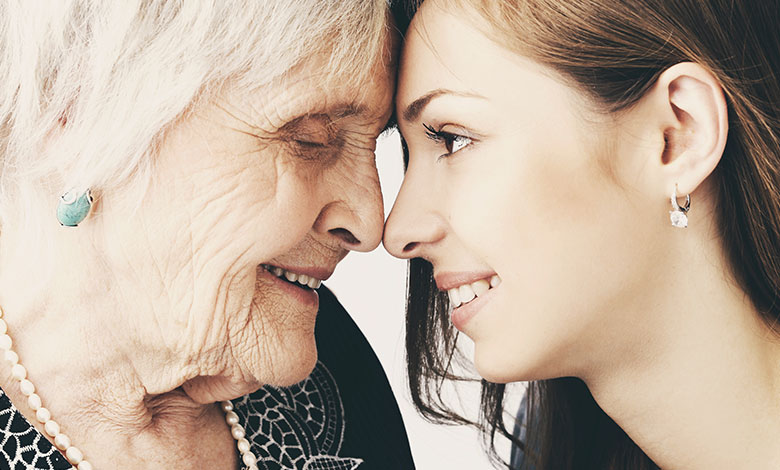You get angry, you say something without thinking, or you intentionally do something bad, and then you go around blaming yourself for it. Sound familiar? It probably does. Let’s talk about why we experience guilt and how to keep it from “zapping” us.
What is guilt.
The term refers to negatively colored feelings triggered by a person’s actions that he or she feels are inconsistent with society’s moral principles and/or pose a threat to others. This feeling is not innate: a person does not know about shame or guilt when they come into the world; these concepts are imposed by society, brought up by parents and the environment.
When a person is a child he/she develops his/her worldview and perception of the world, together with which a chain of reactions to certain actions appears, there appears an idea of good/bad as well as of good and evil, the concepts of “shame”, “conscience”, “guilt” arise.
How the concepts of “guilt” and “shame” differ
Shame is a public phenomenon, while guilt is personal.
Guilt can arise regardless of whether or not the act that caused the person to experience this emotion had witnesses, while shame arises only when there are witnesses. Guilt comes from the torment of a person’s conscience, while shame comes from public condemnation. Guilt we instill in ourselves, and shame is forced upon us.
The mechanism of occurrence
The torment of conscience can manifest not only as a reaction to one’s actions, but also as a response to a traumatic event. This feeling helps us process the trauma, and then we feel like we are in control of ourselves.
For some, though, this self-blame does get out of hand when, for example, we begin to blame ourselves for excessive success, luck, good fortune, or any other situation that we cannot in fact have any influence over.
The Phenomenon of Guilt in Psychoanalysis
Sigmund Freud viewed guilt as the self’s (“Ego”) perception of the criticism of the super-ego, as the tension between the demands of the super-ego and the achievements of the self. The super-ego mechanism is the source of guilt. Anxiety and fear can translate directly into anguish of conscience. In normal functioning, the super-ego condemns the ego, and this leads to regrets for things done and said.
Freud believed that consciousness is predominantly male because it results from identification with a father figure, while the female “Super-Self” is incomplete. Modern research proves that women are just as capable of feeling remorseful as men.
How does guilt come about?
Most often it is formed in deep childhood. The child depends on his father and mother, his parents are his authority, so everything they teach him in the future will be a psychological guide in life.
He will understand that some actions cannot be done for some reasons, and others – for opposite reasons. In the future, the child will be guided by the values of life that his parents have nurtured: what is good, what is bad, how you can act with people, how you cannot, how you should and should not.
Usually children fully trust the authority of their parents, but if for some reason the child suffers because of Mom or Dad (or other adults in the family), he or she will ask: Who is wrong? He knows that, of course, parents are in charge, and they definitely do everything right, but he may also realize that he himself has not done anything wrong.
This situation has several ways of resolution, in the worst of which the child is traumatized by unconsciously taking the blame, this in the future is fraught with cyclical self-destruction and the formation of chronic feelings of guilt, even when someone else is wrong.
The child feels bad, the employee feels incompetent, the mother feels incompetent, and the artist feels unsuccessful. But by understanding why we blame ourselves, we can find strategies for getting rid of shame and parting with it, if not forever, then for a long time.
Feelings of guilt: is it good or bad
The usual average regret about the deed is, on the one hand, an indicator of the presence in a person of conscience, good upbringing and the ability to adequately assess this world, calling things by their proper names. Therefore, one cannot say that it is a bad thing.
On the other hand, shame and guilt are still negatively colored emotions, they negatively influence the body’s behavior, namely psychological processes in it. Self-abuse has its own psychological formula, which consists of fear and autoaggression (aggression toward oneself).
Both of these phenomena cause an increase in the level of cortisol, the hormone responsible for regulating rapid reactions and stress in the body. When stressed, one lives in negativity, but not everyone knows how to control these body reactions, adapting to the comfort of themselves and their surroundings, so it is best to learn to cope with yourself and your emotions. Fortunately, there are ways to work through such traumatic scenarios.
How to get rid of guilt: 5 steps
When you have done something bad, because of which you feel guilty, the best thing to do is to apologize sincerely, admit that you were wrong and try not to repeat your transgression in the future. However, sometimes the situation for which shame remains in the distant past, but regret about what was done continues to haunt us and does not give rest. What to do?
- Understand the reason – why you feel remorse
If you dig deeper into the topic, you can understand that in everyone lives a lot of situations from the past, remaining in the subconscious and formed a sense of guilt. It is necessary to realize: what kind of situations are they, what emotions you are experiencing, what your body is feeling, how do you feel about what is happening yourself?
It is best to do this introspection alone with yourself and in conditions that are comfortable for the process. After you have answered the questions in a detailed way, you will be able to compare the answers and find the most frequently mentioned subject of the problem, the trigger that provokes the feeling that you have done wrong.
- Identify the people who can trigger and manage your feelings of guilt
You shouldn’t automatically feel guilty in front of half the people because they have nothing to do with you and your life. Half of the situations in which you blame yourself are probably far-fetched, and no one knows about them but you.
In the other cases, the stories may not be as global as you or those who are trying to make you feel ashamed. In cases where the person is an authority for you and you value their opinion, trace the moment in which the oppressive feeling comes, find the reason for it and ways to eliminate it.
- Talk to the people in front of whom you are experiencing this feeling
Effort of a magic wand can not eclipse the mind, and just throw out of your head negative thoughts will not work. Write out the most painful moments in which you feel the torment of conscience in front of certain people, and find the strength to go to them to talk frankly to sort out the situation, saying about their feelings openly.
This way you will very quickly get rid of destructive emotions, you will feel better morally, and at the same time you will make contact with the other party to whom you are ashamed.
- Forgive yourself
Without this point it’s impossible to finish what has begun – it’s the main, climactic, and all the previous actions you do in order to eliminate unpleasant feelings, forgiving yourself.
Colin Tipping’s well-known book Radical Forgiveness describes from the first pages a person’s path to self through self-forgiveness, because most of the situations in which we blame ourselves are our own illusions, fears and unworked traumas from childhood. The answers to the questions must be sought in yourself, so you only need to forgive yourself.
- Realize that you’ve done all you can do
At this point, it’s important to realize that you’ve already given enough time to your torment of conscience and made certain conclusions. Now you know that you are the only mistress in your body: you control your brain, nervous system, relations with people, the degree of their influence on your consciousness, personal space and feelings, including shame and guilt.













